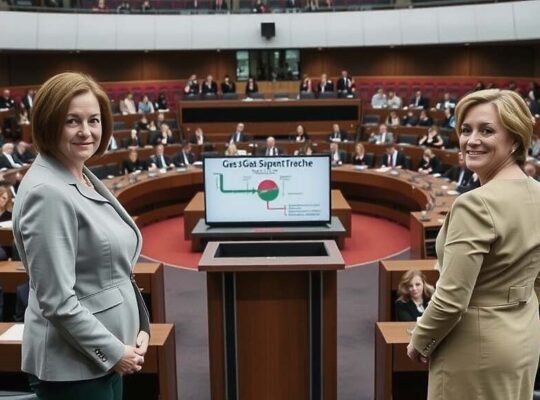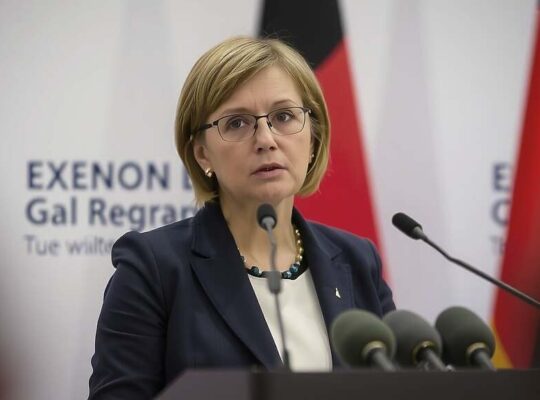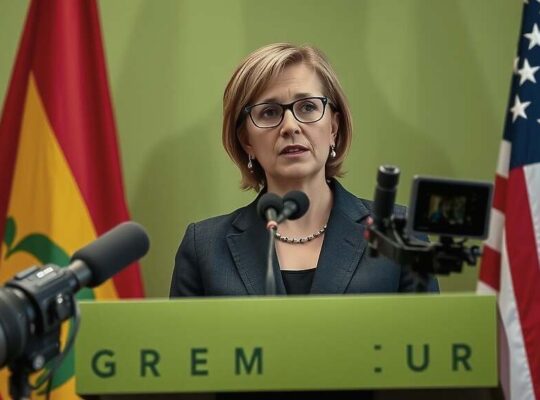Germany’s Health Minister, Nina Warken (CDU), is proposing across-the-board cuts totaling two billion euros within the statutory health insurance (GKV) system in a move sparking debate and raising concerns about the stability of healthcare provision. The proposals, revealed by the Frankfurter Allgemeine Zeitung (FAZ), aim to address a projected deficit exacerbated by recent downward revisions in economic forecasts.
The bulk of the savings, approximately 1.8 billion euros, are targeted at hospitals, a move critical voices argue will disproportionately impact patient care and potentially lead to reduced services. Further cuts will be achieved via halving the healthcare innovation fund and limiting the increase in administrative costs – covering areas like advertising, third-party remuneration and material expenses – to eight percent above the 2024 baseline.
The proposals, presented to other ministries for coordination on Friday, include changes impacting “Social Book 5” a key initiative within the broader healthcare framework. These amendments are slated for consideration by the Federal Cabinet on October 15th, integrated within legislation aimed at expanding powers and reducing bureaucracy in the care sector, which will come into effect on January 1, 1926.
Simultaneously, the Health Ministry faces the significant task of setting average contribution rates by November 5th, with the proposed cuts intended to avoid increases in the mandatory supplemental contribution, currently ranging from 2.5 to 2.9 percent, on top of the standard contribution rate of 14.6 percent.
Sources indicate the planned hospital cuts involve suspending the “most favorable clause” essentially restricting budgetary flexibility and potentially dictating pricing structures based on a nationally calculated benchmark rather than regionally negotiated agreements. This standardization raises concerns about a uniform approach failing to account for regional cost variations and the specific needs of different healthcare facilities.
Adding to the complexity, a consensus remains elusive regarding the stabilization of nursing care contributions. A task force convened by Minister Warken is due to present an initial report on Monday, but disagreements between the ruling coalition partners, the CDU/CSU and the SPD, have hampered progress.
A potential compromise under consideration involves redirecting a proposed 2.3 billion euro loan from the 2026 federal budget, initially earmarked for the health insurance system, towards nursing care. However, this maneuver would necessitate even more stringent savings measures within the statutory health insurance system.
The proposed cuts signal a considerable shift in policy and generate questions about the long-term sustainability of the GKV system and the potential consequences for both patients and healthcare providers. While intended to avert contribution increases, the scale of the proposed reductions invites scrutiny regarding the overall impact on the quality and accessibility of healthcare in Germany.












